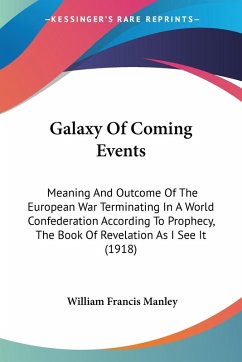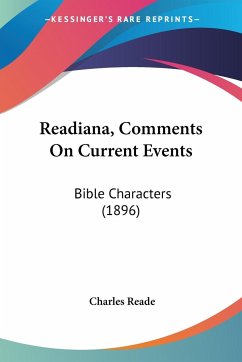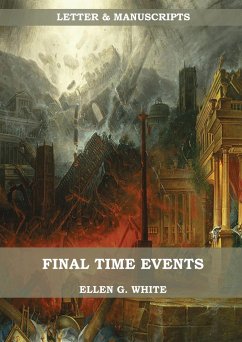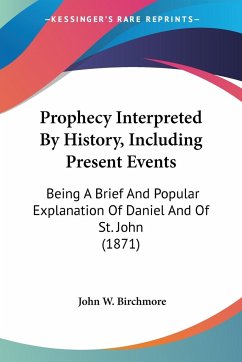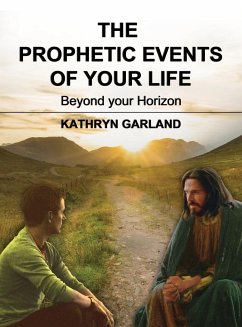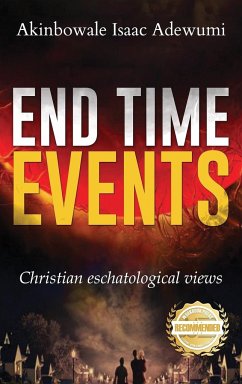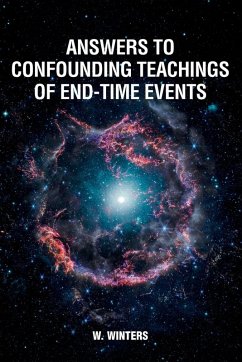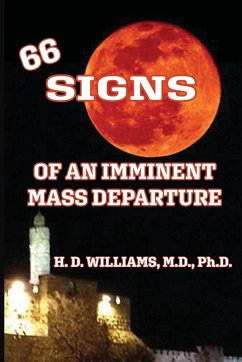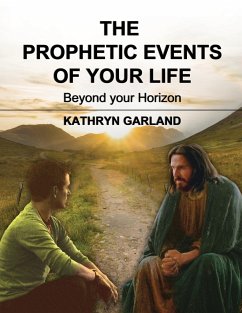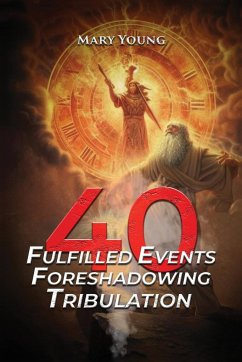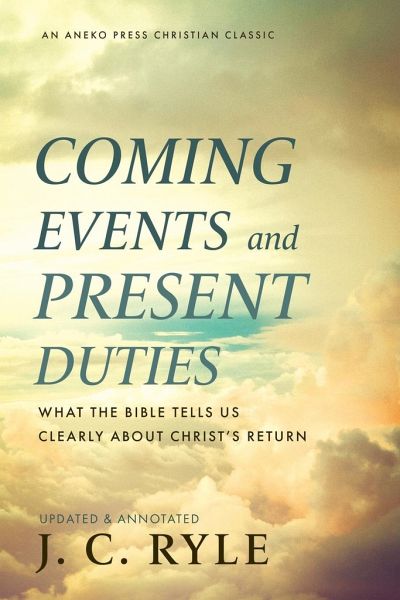
Coming Events and Present Duties
What the Bible Tells Us Clearly about Christ's Return

PAYBACK Punkte
8 °P sammeln!
Watch therefore, for ye know neither the day nor the hour wherein the Son of man cometh. (Matthew 25:1-13) We live in troubled and dangerous times. It has been a long time since there have been as many ideas and events in our world causing fear and anxiety as there are today. But one thing, in any event, is clear, and that is the duty of Christians to search more diligently than ever the prophetic Scriptures. Do not be like the Jews at the first advent who were blind to the hand of God and the fulfillment of His purposes in all that was going on in the world. Let us instead remember that the w...
Watch therefore, for ye know neither the day nor the hour wherein the Son of man cometh. (Matthew 25:1-13) We live in troubled and dangerous times. It has been a long time since there have been as many ideas and events in our world causing fear and anxiety as there are today. But one thing, in any event, is clear, and that is the duty of Christians to search more diligently than ever the prophetic Scriptures. Do not be like the Jews at the first advent who were blind to the hand of God and the fulfillment of His purposes in all that was going on in the world. Let us instead remember that the word of prophecy is given to be a light that shineth in a dark place, until the day dawn, and the day star arise (2 Peter 1:19). Let us walk in that light. Let us search what, or what manner of time the Spirit of Christ which was in them [the prophets] did signify, when it testified beforehand the sufferings of Christ, and the glory that should follow (1 Peter 1:11). Let us compare prophecies fulfilled with prophecies unfulfilled and attempt to make the one illustrate the other. Let us strive, above all, to obtain clear views of the things we should be expecting, both in the church and the world, before the end comes and time will be no more.




